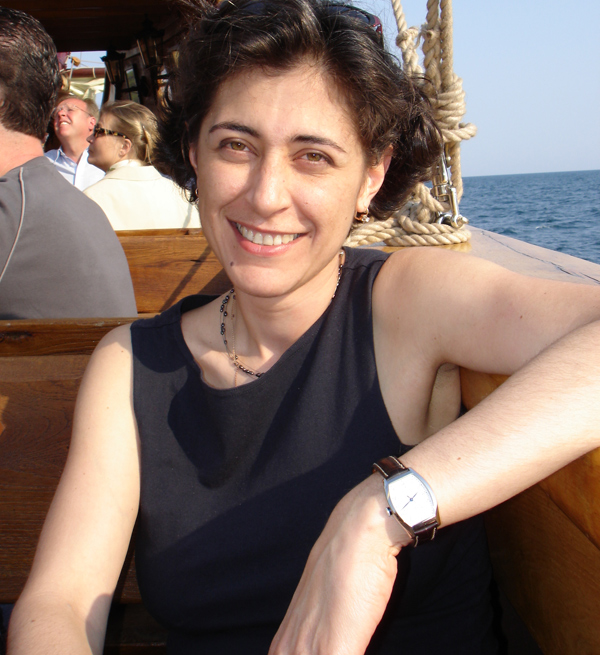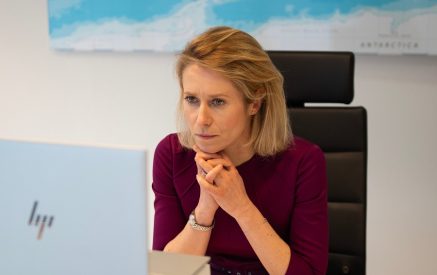According to expert of Armenian Center for Democracy, Security and Development, Marta Ayvazyan, Russia can deprive Sargsyan of his presidential office by using its loyal political forces.
– Serzh Sargsyan attended the NATO summit in Wales on September 4-5. He did not attend the 2010 Lisbon, the 2012 Chicago NATO summits. How do you explain S. Sargsyan’s decision? What will this participation produce for Armenia given the hints made in his speech addressed to the authorities of Azerbaijan and Turkey?
– Sargsyan’s participation in the NATO summit, in my opinion, is due to several factors. First, despite all efforts, Russia, however, not only failed to achieve its goals in Ukraine, moreover, it appeared in some political and economic isolation with a label of the international security threat. The developments in Ukraine and Russia’s behavior resulted also in strained relations within the Eurasian Union by making the future of this structure even hazier. At the same time, the Iranian rapprochement with the West and the full-scale export of programmable Iranian energy-carriers to the West through our region contains risks to Russia’s economic and political interests. Under this situation, South Caucasus has furthermore become more important for Russia, and given the rapid development of the events, Russia hurries to ultimately privatize Armenia, and, strengthening its presence here, to possibly have the control and, if necessary, to intervene in the regional developments from Armenia or with the help of Armenia, to reinforce its relations with Turkey and Azerbaijan at the expense of the interests of Armenia and to use all of this for its own interests. In my opinion, the recent Sargsyan-Aliyev meeting in Sochi by the initiative of the president of Russia and without the attendance of the other two MG co-chair countries was due to this situation. The long-term goal of the meeting was the settlement of the conflict by gradually shifting from the Minsk Group format to a process under the Russia governance in Turkey’s although unnoticed at first glance, but undoubtedly active participation. The prospect of future deployment of Russian peacekeeping forces in the conflict zone and turning the territory of Nagorno-Karabakh into a Russian military base at the expense of some regional concession to Azerbaijan are also evident. To implement these programs, Russia needs unreserved loyal and faithful Armenian authorities, which will also be able to impose our society any unacceptable for us solution on the Nagorno-Karabakh conflict, if necessary. Judging from some of our domestic political developments, it can be assumed that Serzh Sargsyan does not have such confidence rating for Russia, he is viewed by Moscow as an depleted resource, and every minute Russia can deprive Sargsyan of his presidential office by using its loyal political forces in Armenia. On the other hand, under the created situation, the implementation of Russia’s plans and the continued strengthening in our region are extremely undesirable for the United States and Europe. In the event of such developments, the stability and peace not only in the South Caucasus, but also in the wider region would be under constant threat. In this context, we should not also forget about the situation in Syria and Iraq, particularly with regard to the proclamation of the Islamic Caliphate. In my opinion, under the influence of these factors, and most likely, followed by the US intervention or allegation, Sargsyan, who strongly realizes that in all cases the West, unlike Russia, is a reliable partner, and under these conditions, it can be a life preserver both for his government and possibly for him, has accepted a decision to attend the NATO summit. As to Armenia, then, regardless of the motives, Sargsyan’s this move, in my opinion, is in favor of Armenia, because in the minimum, our presence in the most important circles of the cooperation in the West is preserved.
– In your opinion, are the Armenian government’s expectations with regard to declaration justified? Because of generalized formulations on Nagorno-Karabakh conflict, Armenia did not attend the previous summits at the presidential level. In this respect, what is the difference between Lisbon and Chicago declarations with the Declaration of Wales?
Read also
– Basically, there is no difference between the formulations found in the two declarations about the conflicts in the post-Soviet territory, including Nagorno-Karabakh conflict, and in the current situation, it could not be. These formulations are in full compliance with the policy conducted by the alliance over the years, which is unchanged, and complies with the definitions of documents adopted internationally. The reasons related to non-participation in the past were not substantiated for me and were addressed to the layers of the society that are ignorant of the patterns of international relations, international organizations’ activities, as well as the principles and nuances of elaboration and adoption of such documents. As to what the expectations of the RA authorities were and to what extent they are true, I cannot say, however, I doubt that they really had grounds for any expectations.
– The NATO declaration reads, “We remain committed in our support of the territorial integrity, independence, and sovereignty of Armenia, Azerbaijan, Georgia, and the Republic of Moldova, and will also continue to support efforts towards a peaceful settlement of these regional conflicts, based upon these principles and the norms of international law, the United Nations Charter, and the Helsinki Final Act.” Under this support, how can NATO influence on the Karabakh conflict settlement process at this stage?
– For the current stage of the Karabakh conflict settlement process, neither this provision taken separately nor the difference, with which NATO expresses its support to the Minsk Group as an internationally recognized and adopted negotiation format for the settlement of the conflict are of specific importance. However, a special attention should be given to the fact of organizing the decisive Sargsyan-Aliyev meeting by the US in the framework of the NATO summit under current geopolitical situation and conducting serious discussion on the Nagorno-Karabakh conflict settlement. Let’s not forget that this meeting was immediately followed by a meeting in Sochi. As I already mentioned, it is not desirable for the West to hand over the entire Nagorno-Karabakh conflict settlement process becoming a key to the solution of the issue to reach peace and stability in our region to Russia, which is absolutely not interested in establishing peace in the South Caucasus. In this context, the meeting organized during the NATO summit held under the West-Russia tense relations, the summit, which was not attended by Russia, and the statement resulting thereof acquire another sonority, particularly for Russia, and currently they can somehow restrict the RF’s, as well as Turkey’s and Azerbaijan’s activeness in the Nagorno-Karabakh peace process, which, in my opinion, stems also from the interests of Armenia and Artsakh.
– How can the tension in relations between Russia and the West on Ukrainian matter affect Armenia, moreover, when we are heading to the Eurasian Union? And how should Armenia behave? Is the policy of “and-and” possible in this situation? And even if this policy is conducted, can it be effective given the current geopolitical realities?
– As a result of its active participation in Ukrainian conflict, both military and political, and the Crimea’s occupation, Russia today is perceived as an unpredictable state causing a risk to the international security and peace. It is natural that since September 3 of last year, having the status of Russia’s annex or puppet, Armenia, which in the international arena, recall the voting in the framework of the UN, exercises Russia’s instructions, currently has become a subject of international sarcasm and scorn. Pertaining to the “and-and” policy, Armenia has long ago exhausted the opportunity of running such a policy in a previously developed format, which is particularly unacceptable and unproductive in such tense and conflict situation. In the current situation, Armenia, our political and social forces, should take all possible measures, using all circles of the international cooperation, try to preserve at least the remnants of our self-determination, and based on ideas of peace and sustainable development and united by clear political agenda, seek to achieve such domestic political regime changes, which will enable us not only to preserve our state, but also our identity.
– The Foreign Affairs Minister of Armenia left for Ankara, and attended the Turkish newly elected president’s inauguration ceremony, handed the President of Armenia’s invitation to attend the commemoration ceremony of Armenian Genocide victims in Yerevan, next year, on April 24. Even today, the newly elected President of Turkey presents the Nagorno-Karabakh conflict as a prerequisite to the settlement of Armenia-Turkey relations. Do you hope that official Ankara will make moves for normalization of relations with Armenia ahead to the 100th anniversary Genocide?
– The Nagorno-Karabakh conflict as a precondition for normalization of relations with Armenia is and will remain on the Turkey’s agenda in the absence of principal changes in the conflict settlement process and will be used by the latter as appropriate. Ahead to the 100th anniversary of the Genocide, certain steps will be made by Turkey, I do not also exclude the participation of the Turkish delegation to the commemoration ceremony of the victims. Note that already this year, the then Turkish Prime Minister, Tayyip Erdoğan, expressed his condolences to the descendants of the Genocide victims, which was unusual for the Turkish government. But as to how much these steps would be continued in practice and comply to the interests of Armenia, depends on the outcomes of geopolitical processes, and like in all other cases, the ability to run a foreign policy independently and protect its interests.
Emma GABRIELYAN






















































